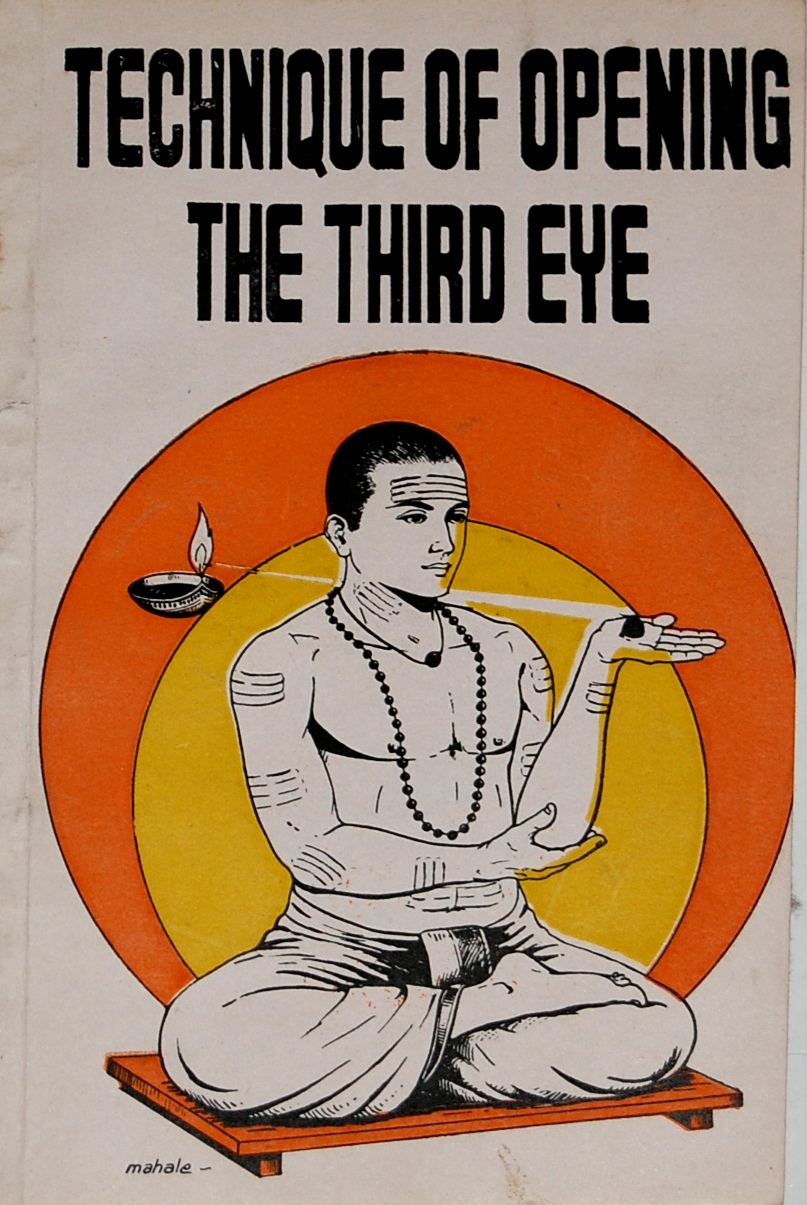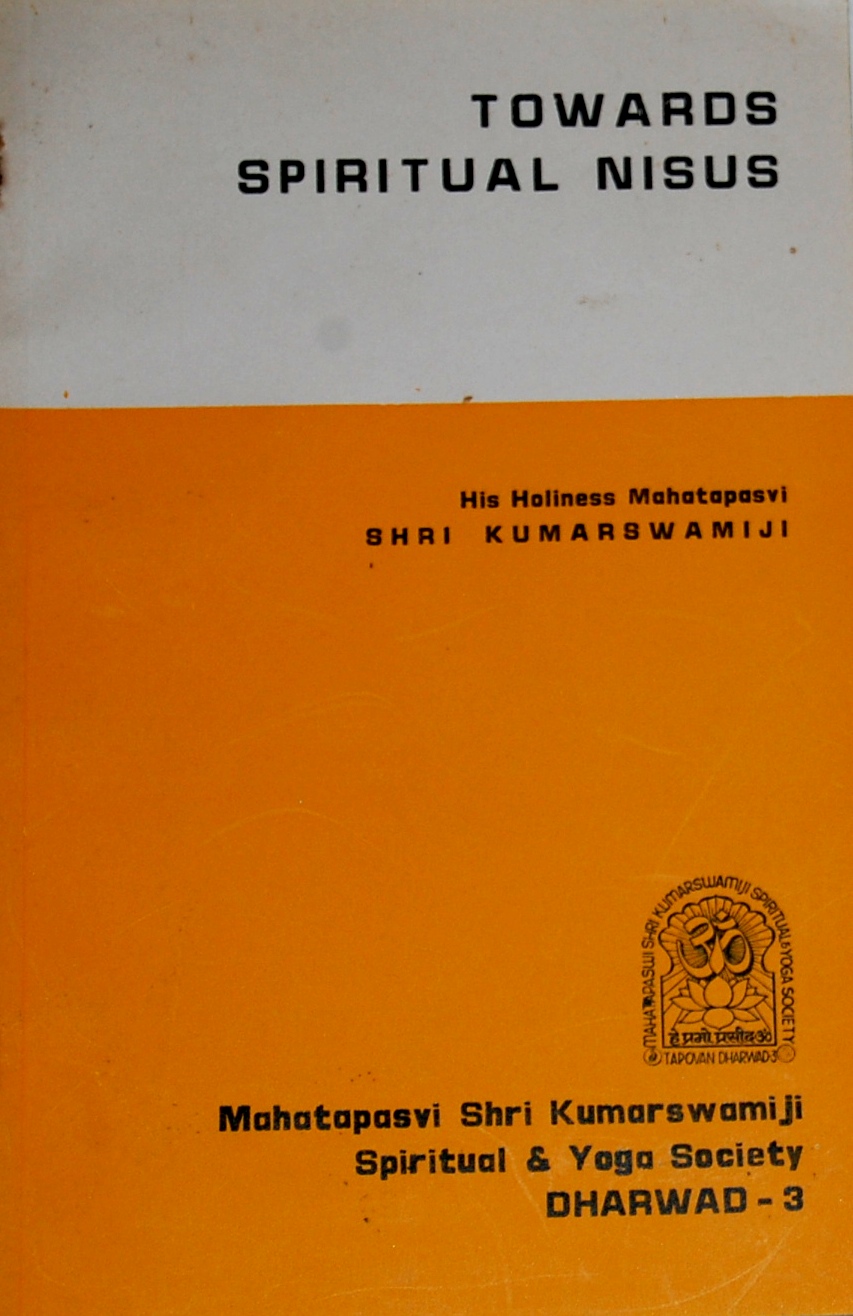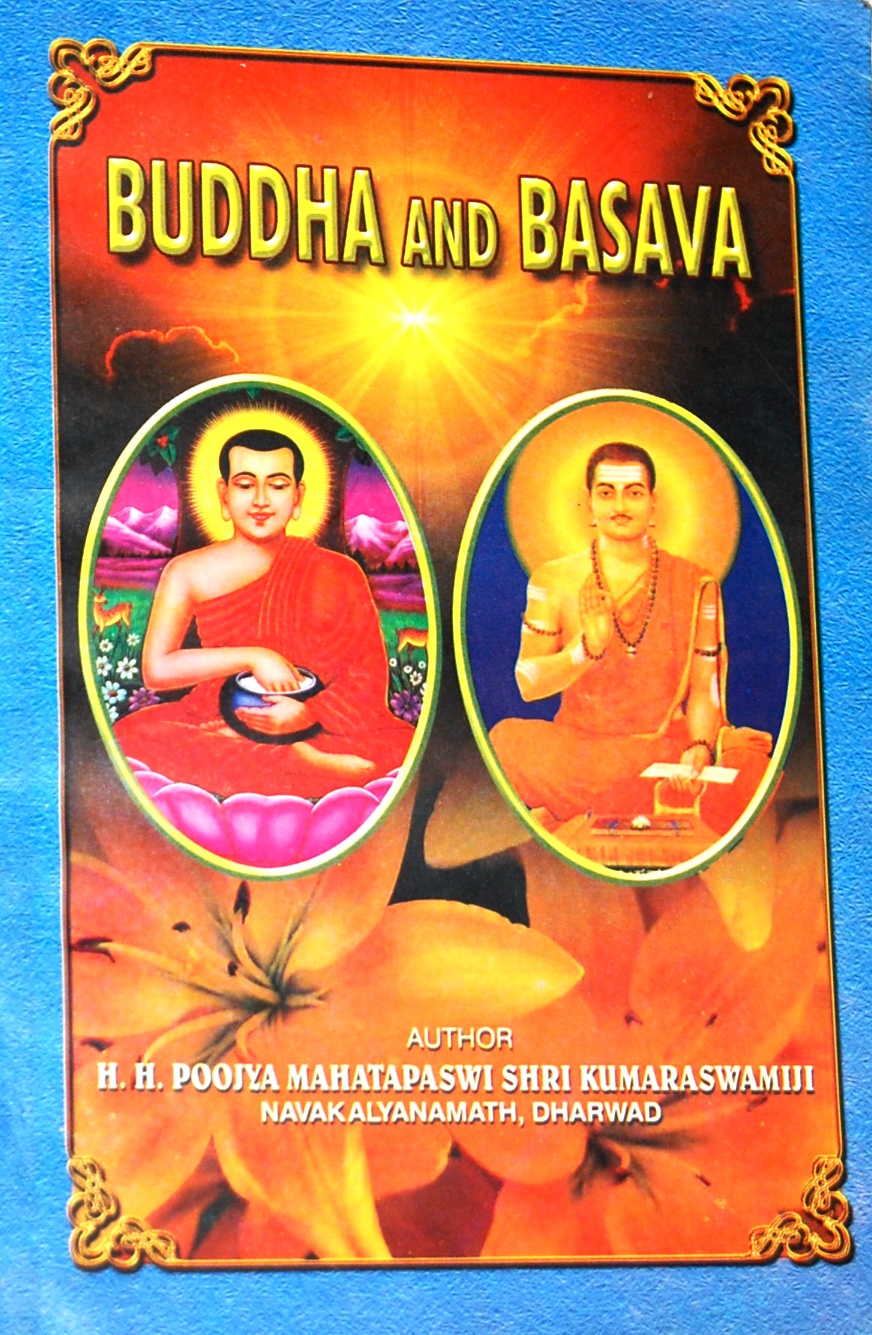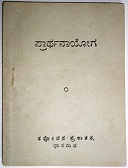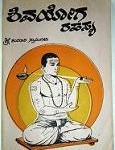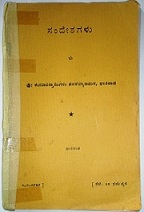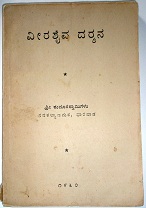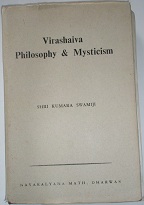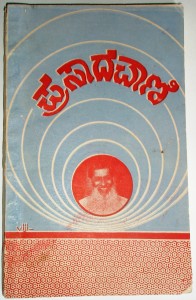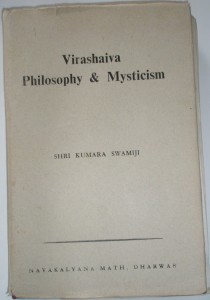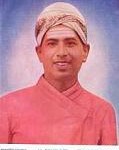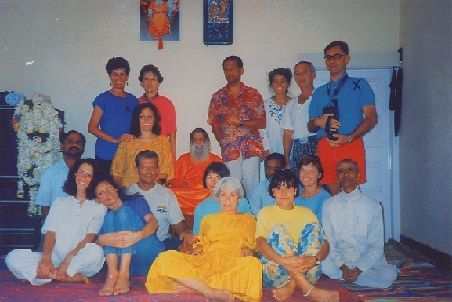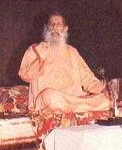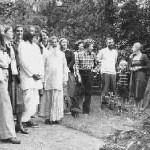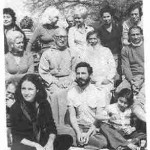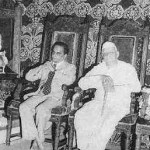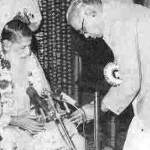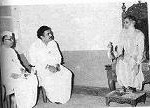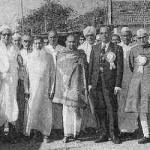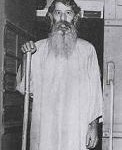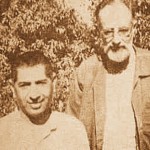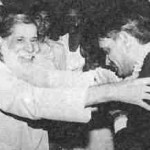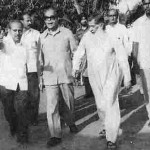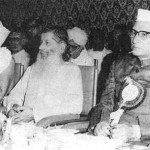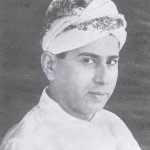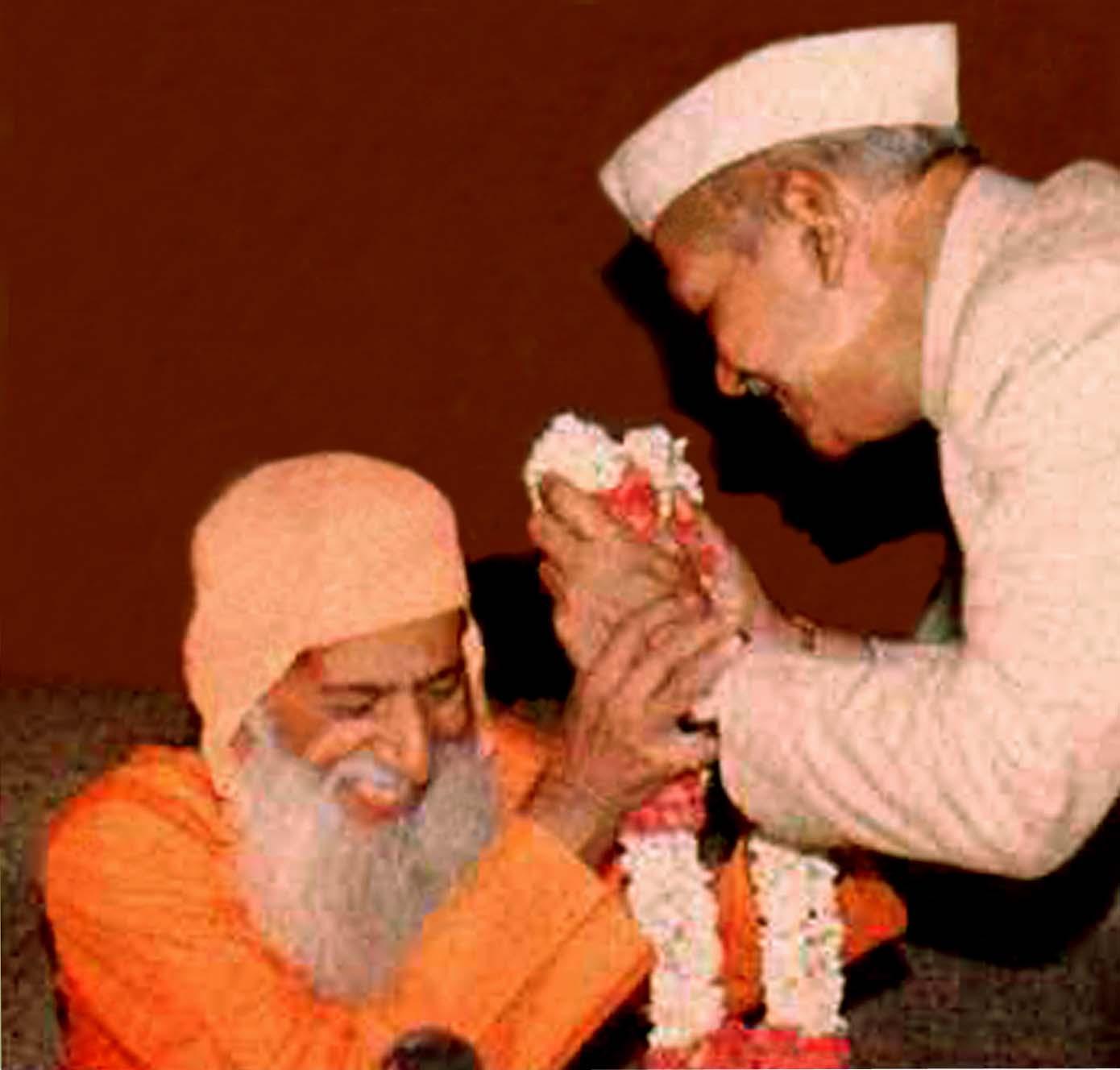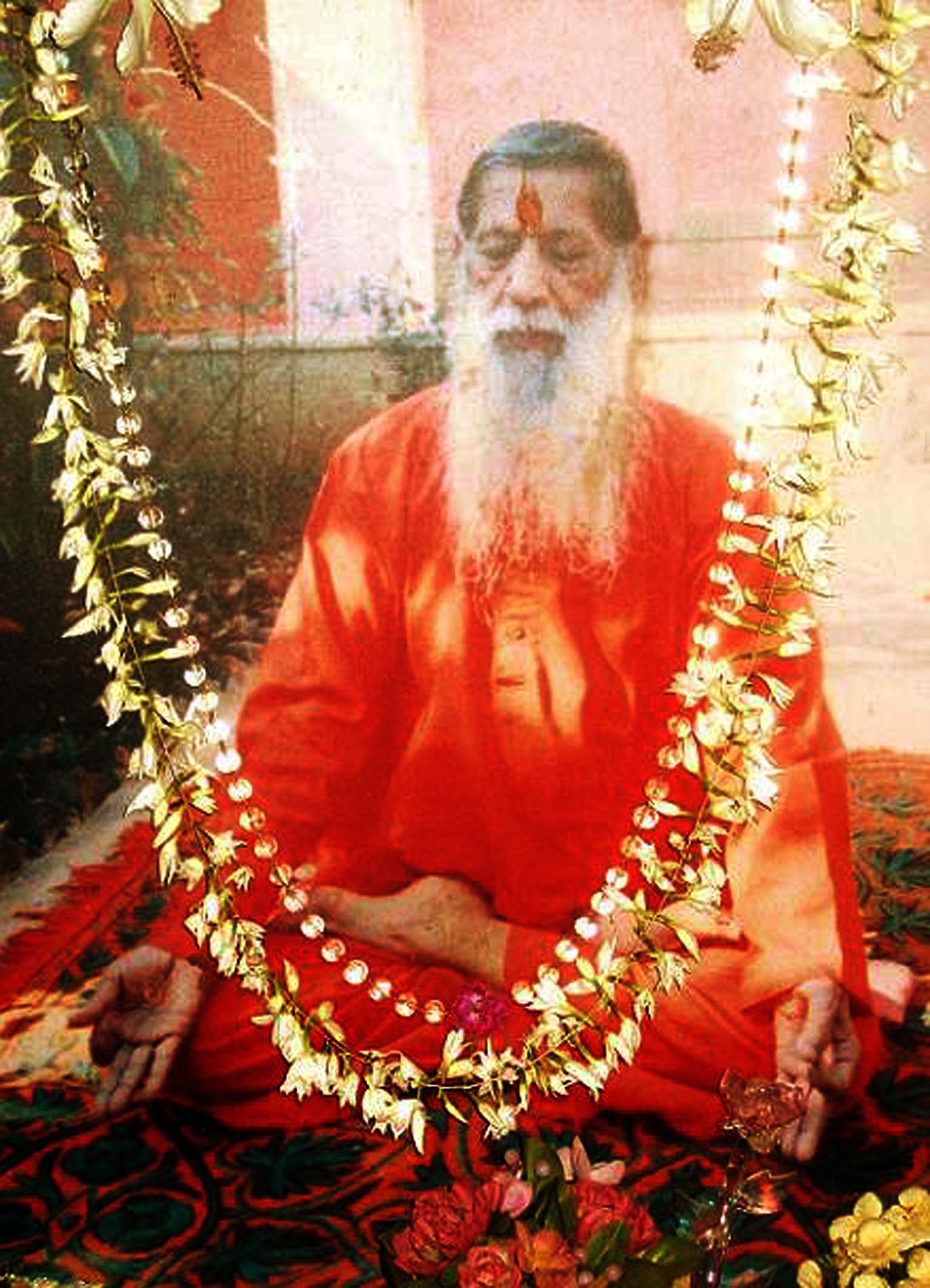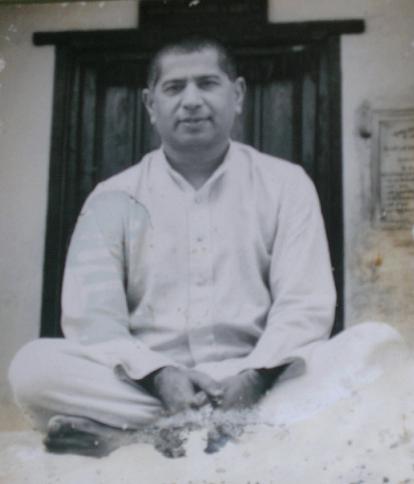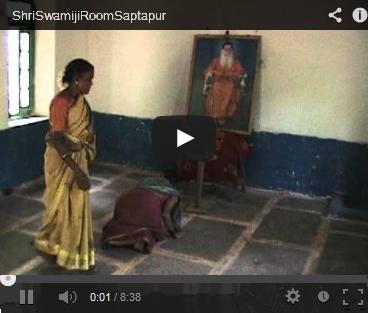Permanent improvement in human conditions of labour is only possible where this inner spirit of love is realized and understood. Without this inner spirit, all labour movements are little else than the building up of houses on the sand of the sea shore, to be washed away by each incoming tide. In order to translate into action this spirit of love and service, Basava attempted to build a brotherhood of labour which sprang from the very heart of the inner life. It was purely voluntary and intuitive, a free and willing service. It differs from what is called today Communism in this respect, that it was an act which had its source within the soul and it was rooted in nonviolence. His Holiness Shri Kumarswamiji beautifully explains this unique contribution of Basava to human society in following article ‘Basava and Labour’.
The Greek Ambassador Megasthenes noticed in India one remarkable thing, and it was the absence of slavery. This appears to have been one of the noblest results of the great early Buddhist religious impulse. The monasteries of Nalanda and Taxashila and of the other places in India played a great part in taming the aboriginal tribes around them, and conquering the barbarians by love and not by massacre and hate. There was a fraternity which rescued the slave and the untouchable from the contempt of the higher castes and races. Through the first impulse of the monastic movement initiated by Buddhism, renunciation was the one ideal of life with regard to wealth and worldly goods. Such ideal of renunciation is not at all uncommon in India, even at the present time. In the present century in Europe it is hard to realize the moving power of this ideal, though it had its glamour in the Middle Ages and for the early Christians. We are aware of the struggle which Tolstoy had within the bosom of the family, in our own times, to renounce all and become poor, and how he failed up to the end to carry his family with him. It is hard for the many-sided life of Europe to grasp a social life in which the ideal or renunciation can bring about silent revolutions.
In the Greek and the Roman world, labour was mainly performed by slaves. We must understand clearly the immense significance of this face, and mark the treatment which these slaves received. In domestic life, among the Romans, there seems to have been only occasional cruelty towards slaves. But on large estates in the country and on the huge sea-galleys, the sufferings of the slaves were appalling. It is difficult even to picture how vast that cruelty was, and how terrible the slave mortality. Desperate efforts at revolts on the part of the slaves, were always followed by the most savage acts of repression, till fear entered into their very bones and revolt became impossible on account of terror. Slavery was probably the greatest of all the causes of the fall and decline of the Roman Empire. It corrupted the rulers themselves, and made them in turn the slaves of their own vices and evil passions. India has not escaped the curse of slavery and her history gives instance of inhuman slave trade. The instance of Harishchandra and his wife being sold in the market place of Benares symbolizes what was already an accepted human system. Just as in Europe, the priest vied with the lord in exploiting the slave and the villain, so also the Brahmin and the Kshatriya waxed rich upon the labour of the suppressed classes. But whereas in Europe, there were frequent risings of peasants and their inferiors against their masters, there were none in India. The caste system had not a little to do with the notorious submissive spirit of Indian villains. Unfortunately, India was sunk helplessly in her slavish slumber. Buddha appeared on the scene and preached his gospel of love and nonviolence. He emphasized the equality of brotherhood between bond and free as also the equality between man and woman. This principle of brotherhood was not merely theoretical but intensely practical, which led to the gradual disappearance of slavery in India. Yet so strong is the selfish and possessive instinct in human nature, that a weary lapse and relapse had to intervene before what seemed so very nearly won by Buddhism, could be finally established.
Different countries reached the stage when slavery as an important system of human relations came to be abolished, at different stages of their economic and social development. Greece and Rome were never able to get on without slaves, and in fact the economists of Greece laboured hard to develop a scientific theory of the economics of slave ownership. True it is that the Stoics and others strove their best to conceive the idea that the human beings could all be equal, and the Roman lawyers successfully argued that all men equal in nature so that the Jus Naturale should make no distinction between different people. But we must not overlook the fact that both Plato and Aristotle took the system of slavery for granted, and that the latter even went to the length of providing a political and philosophical justification for slavery. The Roman Tribunes as well as Emperors found it a convenient instrument in the then prevailing social and economic organization of society. Although most of the nations in Western Europe were able to emerge through the mediaeval times, after having shed their systems of slavery, they persisted until the time of Wilberforce in concerting free human beings of Aftica into slaves, and carrying on in them a very remunerative trade, peopling the South Indies and South America with large numbers of black slaves. This relapse into a new slave trade was far more appalling in suffering than that of the Roman mines and galleys. This was the Negro slavery which devastated Western Africa from the 16th to the 19th century. Wilberforce set into India was this, that it degraded manual labour and made it too mean and base and vulgar thing for a high caste born man to practice. The consciousness of the dignity of labour, which Basava brought home to men, by his sayings and his personal example, was not long in breaking down this contempt for labour. Basava sought to proclaim the love of God to rich and poor alike. He blessed with his tender compassion the outcaste and the despised. Whether we read his stern denunciations of the rich who live luxurious lives, his hatred of greed and selfishness, his indignation at the religious hypocracy or whether we read of his tenderness towards the suffering poor, his gentle care for and protection of the untouchables, his forgiving compassion for the erring – the outlook is always the same. What he aims at, all the while, is the healing of mind of wounded humanity by a vast inexhaustible inflowing of divine love. His inward method was clear for all time and none could mistake it. It was only the service of love that could finally prevail.
Basavanna’s ‘Aikya Sthala’ at Kudala Sangam.
Permanent improvement in human conditions of labour is only possible where this inner spirit of love is realized and understood. Without this inner spirit, all labour movements are little else than the building up of houses on the sand of the sea shore, to be washed away by each incoming tide. In order to translate into action this spirit of love and service, Basava attempted to build a brotherhood of labour which sprang from the very heart of the inner life. It was purely voluntary and intuitive, a free and willing service. It differs from what is called today Communism in this respect, that it was an act which had its source within the soul and it was rooted in nonviolence. Voluntary as indeed it was, we can see that the conditions which went to make the perfect fulfillment of the life of such a brotherhood of labour at first possible, could not be lasting in the world as it then existed. Only after a long discipline, of which we cannot even now see the end, could a strength inner character become so widespread as to make such spiritual labour in its full unselfishness practical, normal and natural, except among a selected few. Neverthless, the attempt did not altogether perish without bearing fruit. In the Anubhava Mantap founded by Basava the labourer and the lord, man and woman, rich and poor, the high and the low, differing in race, colour, sex and position sat side by side together at a common table, shared together in love. This surely was no slight victory in a divided and caste-ridden world. In the midst of all the selfishness and worldly greed of later ages, this voluntary communism of Basava became a continual source of inspiration to earnest minded souls, who could not be satisfied with things as they were.
Basava was not merely satisfied with the inward method of purification, but he put into practice the outward method of curing the economic ills of the country and of improving the conditions of labour. A wide divergence is felt between Buddha and Basava when we take into consideration the economic side of their social reforms. Buddha did not countenance vocations or manual labour; he did not encourage the economics of the land. In fact, he ignored it because to him earthly life was a vale of tears; he laid more stress on contemplation than on action. Basava, on the other hand, taught the dignity of manual labour by giving it a religious significance. Every kind of manual labour that was looked upon contemptuously by the so called high-caste persons, came to be looked upon with love and reverence, since it was done in the spirit of service both to God and man. Thus arts and crafts flourished and a new foundation was laid down in the history of the economics of the land. Basava was the first mediaeval prophet to preach that poverty is not a spiritual sin but it is a social evil. It is not a legacy bequeathed to us through sin committed either by us or our forefathers. It is rather an outcome of social and economic conditions. Being urged by this motive, Basava strove hard to set right the economic conditions of the then defunct society. He established a brotherhood of labour, the members of which were required to follow these rules:
(i) Each member should earn his bread in the sweat of his brow,
(ii) Each member should take to any sort of work suited to his temperament,
(iii) Each member should earn no more money than his needs require.
People making much money by ill means without undergoing any labour, as also people habituated to exploit the masses by deceiving them were considered concealed robbers and consummate parasites. Basava had formed people’s committees representing various vocations such as agriculture, horticulture, tailoring, weaving, dying, carpentary etc. All vocations were regarded of equal value and the members belonged to all sorts of vocations. Thus Jedra Dasimayya was a weaver, Shankar Dasimayya was a tailor, Madivala Machayya was a washermen, Medara Ketayya was a basket maker, Kinnari Bommayya was a goldsmith, Vakkala Muddayya was a farmer, hadapada Appanna was a barber, Jodara Madnna was a soldier, Ganada Kannappa was an oilman, Dohara Kakkyya was a tanner, Madara Channayya was a cobbler and Ambigara Chaudayya was a ferryman. There were members of the fair sex such as Satyakka, Remmavve, Somavve with their respective vocations. The curious thing is that all these and many others have sung the Vachanas or sayings regarding their vocations in a very suggestive imagery.
The word Dashoam is a dominant and recurrent note in the sayings of Basava. It means I am the servant. Basava often said after the manner of Christ, ‘ Who is greater? He that sitteth at food or he that serveth’, and he was content to be a servant. Basava admonished his colleagues and his followers to develop in them the qualities of a true servant. He held before them the ideal of selfless service both of God and man. One day Gandhiji was being praised before his face by a speaker who pointed out that, though a Vaishya by caste, he had both the qualities of Brahmana and Kshatriya and then the speaker stopped. Gandhiji, in reply, stated that the speaker had left out the very qualities which he himself had all his life longed most to attain, and they were the qualities of a Sudra. Because the highest ambition Gandhiji had ever had in life was to work and labour with his hands, and to serve to others as a servant. Basava sternly reprimanded the idle contemplatives and asked them to come out of their mediations. He said that they had to give up that lonely, isolated, meditative monastic life, where selfishness crept into the spirit of asceticism, ands the dusty world was left behind in order to save one’s own individual soul. This path-way of asceticism had to be left behind, before the true ideal of labour could be found.
The problem of property is closely linked with the problem of labour. With Basava property was not an individual but a social possession. ‘No man counted anything that he possessed as his own’ – this was the motto. There was a continuous redistribution of wealth, a constant reappointment according to need, instead of according to greed. We have been slowly learning, in the modern world, that this teaching is practical and not merely idealistic; that divorced from this, wealth accumulates in individual hands, till it becomes a monstrosity. We are also beginning to understand that there are no fixed individual rights of property, but there are unmistakably very definite duties of property, if the principle of brotherhood is to be observed.
In the Roman Empire, after the fall of the Republic, the social and religious restrains upon the accumulation of wealth suddenly broke down. A scope for unlimited competition and capitalism on a large scale, became practical for the first time in the West. The opportunity was seized by greedy adventures, and the noblest families in Rome succumbed to the temptation of getting rich quickly. This undermining of the whole economic structure of society began under Julius Ceaser. Augustus saw the danger and tried to enlist every support to bring back the simpler living of the old Roman republican days. But the vicious circle of capitalism, once entered, is not easy to escape. Its effects in degrading the poor, in oppressing the salve, in establishing vast areas of luxurious wealth and abject poverty side by side as a normal social condition, so told upon the vital energies of the State, that without any external defeat the Empire fell to pieces by the accumulation of rottenness within.
Beautiful Holy place Kudala Sangam.
In the Eastern countries, this reign of the capitalist system was probably never established in the same degree as under the Roman Empire in the West. Scholars have now collected, for instance, a considerable amount of detailed knowledge about the empire of Ashoka in India. They have traced the bare outline of its economics, and we are astonished at the business capacity by which it centralized the administration. But though centralization reigned supreme in almost every department, the village communal land tenure went on, unimpeded and unbroken. There were no clear signs of the full capitalist system in operation. The picture we obtain is rather that of a modified state Socialism, a picture differing entirely from that of the later Roman Empire. The same story may be told of China. There individual peasant proprietors remained undisturbed in their possession of small holdings, while dynasties rose and fell. The whole structure of society prevented the growth of capitalism in land and made it difficult also in trade. Religion, in the East, has been intimately interwoven with the social and domestic life, making a Dharma for each individual. Owing to this, the area of self-interest has been strictly and duly limited. But in the Roman Empire and in the Modern Age, another form of society has prevailed, in which the individual has been far less bound by religious and social custom. Unlimited competition and unrestricted capitalism on a large scale have been made feasible in both these periods. Self-interest and self-seeking have tended to become almost completely unrestrained, and their gains have been protected by law.
The accumulation of wealth, as an end in itself has been condemned by every great fraternity whether ancient or mediaeval. It is true that, in Europe as also in India, the desire for wealth has returned again and again, under the cloak of religion. Under the form of sacred property, dedicated to God, this greed for wealth brought decay to the monastic orders. But faith, in the ideal of wealth to be utilized to serve and maintain each man’s status in society, was never lost. To amass wealth, in order to go beyond one’s station and thus to overthrow society was a deadly sin for Basava, the sin of avarice. The only true claim to wealth is the proper observance of duties of one’s station in society. Wealth may be lawfully amassed up to the point of those services which have to be rendered by each member, in his degree, to society. But all other accumulation of wealth is strictly forbidden.
When the civilized world, both in the East and West, shall have given up its belief in ruthless competition, unlimited capitalism and unrestricted private property – beliefs which have led on to the creation of multi-millionaires, land-monopolists, trust-magnates, steel-kings and other abnormalities – then these ancient social systems, namely, the Fraternity of Buddha, the monasteries of early Christians, the brotherhood of labour of Basava, will be once more carefully studied afresh in order to recover some of the fundamental laws of a progressive communal life. They failed in the past, it is remarkable lessons of their own to teach us, if we do not despise them as out of date. For what we are slowly and painfully learning today is this, that the individualistic basis of society has failed in its turn. We have to get back to a more communal basis somehow. Russia and China have made a headway in the direction, but without the spiritual basis of the ancient fraternities. India has accepted the socialistic pattern of society as its creed.
Basava envisaged an organic relation between Artha and Atman, between the economic values and the spiritual values. He opined that the economic system was to human society what the body was to human personality – the physical basis for the growth of the higher functions. And the condition of social progress was that the economic system should be capable of yielding to the State the largest possible surplus on which the development of the State and of culture could thrive. Of the economic system two factors are prominent – capital and labour – of which Basava was the champion of labour. In his opinion capital is static and labour is dynamic. To him the valuation of a thing depended more on the labour expended than on the capital invested. This is true to a certain extent because the village industries to which Basava gave fillip needed little capital and demanded more labour. Anyhow this partiality of Basava for labour anticipates Marx’s surplus valie, however rudimentary that partiality may be. Marx’s problem was to determine the distinguishing characteristic, the social significance of capitalist profit. If it was a surplus in the Physiocatic sense of values paid to some one without a giving of equivalents in exchange, how did it arise and on what conditions did its emergence depend? His method was to take a simple society where different commodities exchanged at their values, and to enquire how a surplus could arise on such assumptions. It could not arise in the course of exchange because this was an exchange of equivalents. The answer he gave was that it arose from the peculiarity of labour-power as a commodity in producing more commodities than were used up to produce the original labour-power. Thus labour-power produced a value greater than its own value. Marx, however, took the basic conceptions of classical Political Economy, and by enlarging the concept of surplus into his concept of surplus-value used Political Economy as a criticism of the Capitalist system.
Two aspects of Basava’s teaching demand consideration from every modern socialist: the first is forbidding usury, and the second is the regulation of just price. Basava severely condemned the hoarding up of money so as to lay it out at interest and live on it without labour. His warning that ‘Capital (money) is a static thing, it must not be allowed to have any offspring, as if it were alive.’ Must be heeded by every earnest socialist. Such a law made for the more equal distribution of wealth; it saved the many from becoming poor and the few from becoming rich. The forbidding of usury was a creed with the early Christians, and later on it was incorporated into Islamic faith. It is said that the Khalifa Umar so far practiced this teaching that he refused to keep a surplus in the State treasury, and distributed what was over every Friday to the people according to their needs.
By the doctrine of just price Basava tried to regulate sales and bargains. In effecting a sale or a barter, it becomes binding on both buyer and seller to strive to reach a just price according to recognized standards; and neither of the two must ask for, nor receive anything more than the just price itself. In one of his sayings Basava compares God to a dealer dealing with human beings, in the form of customers. His dealings are always honest because he exacts a just price. This theory of just price, though fundamentally moral, has its economics counterpart. This theory may be said to bereminiscent of Marginal Utility of the present day political economy, which represents a concentration on the theory of price, as distinct from the classical concept of intrinsic value.
Thus we see that Basava has made some valuable contributions to economics and labour, however rudimentary they may be.
This article – Basava and Labour – is taken from H.H.Mahatapasvi Shri Kumarswamiji-s book, ‘Buddha and Basava’.








